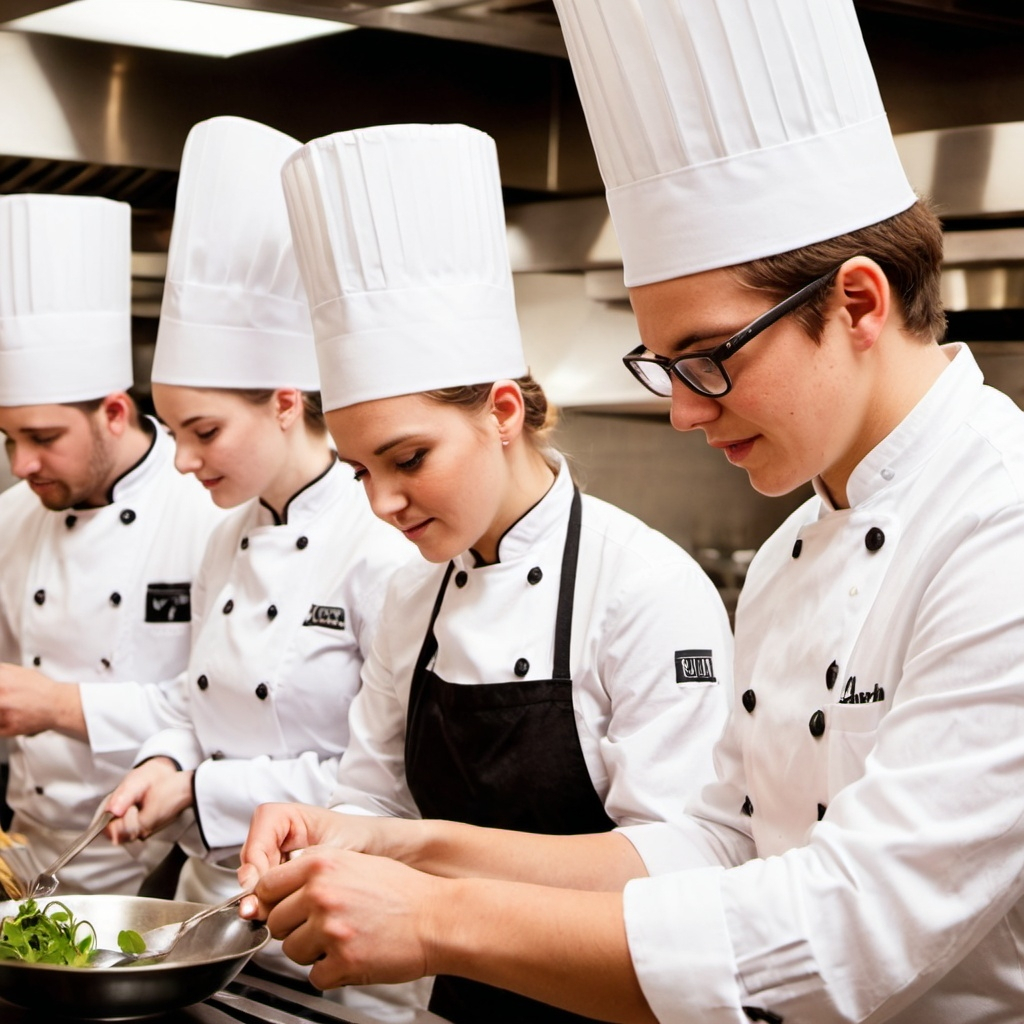The culinary world beckons with its aroma of spices, the sizzle of searing meat, and the artistry of plating. Yet, the path to becoming a chef can be as demanding as it is rewarding. Fortunately, for aspiring chefs with financial constraints, scholarships can be the magic ingredient that helps turn culinary dreams into reality.
Why Consider Scholarships for Culinary School?
Culinary school tuition can be substantial, encompassing not only classroom instruction but also hands-on training and access to professional kitchens. Here’s why exploring scholarships makes good sense:
- Reduce Debt Burden: Scholarships lessen your reliance on student loans, allowing you to graduate with less financial baggage. This frees you to focus on building your culinary career.
- Open Doors to Top Programs: Prestigious culinary schools often have hefty price tags. Scholarships can unlock opportunities to attend esteemed institutions, giving you access to renowned chefs and advanced culinary techniques.
- Invest in Your Skills: Think of a scholarship as an investment in your talent and passion. It allows you to hone your culinary skills without financial limitations, setting you up for future success.
Where to Find Culinary Scholarships:
Unleashing your inner chef doesn’t have to break the bank. Explore these avenues to discover scholarships that can fuel your culinary journey:
- Culinary Schools Themselves: Many culinary schools offer scholarships specifically for their students. Research the financial aid options provided by your chosen institutions.
- Industry Organizations: Professional culinary associations, like the American Culinary Federation (ACF) or the National Restaurant Association Educational Foundation (NRAEF), offer scholarships to deserving students.
- Independent Scholarship Websites: Dedicated scholarship search engines like Fastweb or Scholarships.com allow you to filter results based on your field of study, including culinary arts.
- Restaurant Chains and Food Companies: Some restaurant chains and food companies offer scholarships to support aspiring chefs. Research companies known for their culinary excellence and explore their scholarship programs.
Scholarship Eligibility and Applications:
Securing a culinary scholarship requires preparation and focus. Here’s what you need to consider:
- Eligibility Requirements: Each scholarship has its own criteria. These might include academic performance, financial need, community involvement, or specific culinary skills.
- Application Materials: Applications often require essays, letters of recommendation, transcripts, and work experience details. Demonstrate your passion, creativity, and commitment to the culinary arts.
- Deadlines: Missing deadlines disqualifies you. Mark scholarship deadlines on your calendar well in advance and submit applications well before the due date.
Tips for a Winning Scholarship Application:
While every application is unique, here are some strategies to enhance your chances of winning a culinary scholarship:
- Highlight Your Culinary Accomplishments: Showcase your cooking skills, culinary coursework, or competition wins in your application.
- Express Your Passion: Let your passion for food and cooking shine through. Explain your culinary aspirations and goals.
- Demonstrate Financial Need: Be transparent about your financial situation if the scholarship requires a needs-based application.
- Proofread Meticulously: Typos and grammatical errors can create a negative impression. Proofread your application thoroughly.
- Tailor Each Application: Don’t send a generic essay to every scholarship. Read prompts carefully and tailor your response to each program.
Beyond Scholarships: Alternative Funding Options:
While scholarships are a fantastic option, explore additional means to finance your culinary education:
- Grants: Federal and state grants provide financial aid based on financial need. Research grant options for culinary programs.
- Work-Study Programs: Some culinary schools offer work-study programs that allow you to earn money while gaining valuable experience.
- Part-Time Jobs: Balancing work and studies demands dedication, but a part-time job can help offset educational costs.
Conclusion:
With dedication, financial planning, and a dash of scholarship-hunting savvy, you can turn your culinary dreams into reality. By exploring scholarships and alternative funding options, you can equip yourself with the skills and knowledge to embark on a rewarding culinary career. Now, grab your whisk, embrace the flavors, and let your culinary journey begin!



